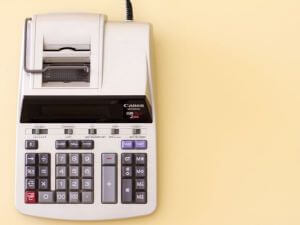Ready or Not, Year-End is Approaching: Ways to Reduce Your Tax Bill
Source: Lindsay Young, McKonly & Asbury
It is not too late to find some simple ways to reduce your tax bill for this year. Tax deductions (or “tax write-offs”) offset your taxable income, thereby allowing you to pay a smaller tax bill. Therefore, it’s important to make sure that you are both claiming all tax deductions available to your small business and claiming them accurately.
year. Tax deductions (or “tax write-offs”) offset your taxable income, thereby allowing you to pay a smaller tax bill. Therefore, it’s important to make sure that you are both claiming all tax deductions available to your small business and claiming them accurately.
Items to Consider as Year End Approaches
Advertising and promotion – Want to send a holiday card or sponsor an upcoming client’s event? Deduct these items as marketing and advertising expense.
- Business meals – If you provided your employees with a holiday party, this social event is 100% deductible. However, lunch brought in, office snacks, team training or other meals with employees or clients, are only 50% deductible.
- Business insurance – Have you reviewed your insurance policies to make sure you are adequately covered for emergencies? Are there additional insurances you should consider? A common missing insurance is protecting yourself against possible cyberattacks.
- Business use of your car – Have you discussed with your accountant the best method to record vehicle expenses? There are two methods available: either the standard mileage rate or the actual expense method. Are you tracking mileage correctly? Apps, such as Mile IQ, can help simplify and increase accuracy of mileage tracking.
- Depreciation – Did you purchase any new furniture or equipment? Assets purchased over $2,500 should be capitalized and depreciated over the asset’s useful life, while items under $2,500 may be recorded as a direct expense.
- Education – Are there available learning opportunities at an upcoming seminar or workshop to improve skills and help your bottom line? Consider registering your team today for these continuing educational courses and include this a business expense deduction.
- Gifts – Thinking about giving a gift to your employees during the holiday season? You can deduct no more than $25 of the cost of business gifts that you give directly or indirectly to each person during your tax year. Incidental costs such as engraving, packing, or shipping aren’t included in the $25 limit if they don’t add substantial value to the gift. Any item that could be considered a gift or entertainment is generally considered entertainment and cannot be deducted.
- Home office – Conducting work from your home office? Depending on your situation, a dedicated office space in your home that’s used solely for business may qualify you to deduct certain home office expenses on your personal income tax return.
- Interest – If you are making loan payments, make sure you’re allocating the applicable interest paid to the profit and loss statement as interest expense.
- Legal and professional fees – Yes, those accountant fees are deductible, along with applicable bookkeeping or services provided by lawyers.
- Merchant service charges and bank fees – You can deduct merchant fees paid to a third-party like PayPal or Stripe. Are you coding these correctly in the accounting software to ensure that you are appropriately representing your gross sales and recognizing your merchant fees?
- Rent expense – Rent paid for traditional office space, along with equipment rentals, are both deductible expenses.
- Salaries and benefits – Review year-to-date payroll expenses to ensure that you have accurately reflected gross to net payroll, employer taxes paid, and benefits.
- Taxes and licenses – Payments for state licensing or business privilege taxes should be recognized as an expense. Most payments for personal taxes should be coded as an owner’s draw (not expensed).
Telephone, internet, and utilities – Review your business usages annually to deduct any business portion of applicable phone, internet, and utility related expenses. - Travel expenses – Business travel is a deductible expense. Maintaining copies of applicable business receipts while traveling is important. Documentation, including travel and event details, ensures creditability in an audit.
- Personally paid business expenses – Did you pay any business expenses with personal funds? If so, those can be deducted as business expenses. Work with your accountant to record these. Make sure you have all associated receipts to support the expenses.
The IRS has specific criteria regarding many of the tax deductions listed above. Many of the deductions listed may or may not be available to your business. Best practice is to consult with your tax advisor or CPA before claiming a deduction on your tax return.
Have a financial check-up soon, so YOU ARE READY FOR YEAR-END!
If you would like to talk to one of our professionals on this topic or any other business-related topic, please do not hesitate to contact a member of our Advisory and Business Consulting team, such as Lindsay Young.
